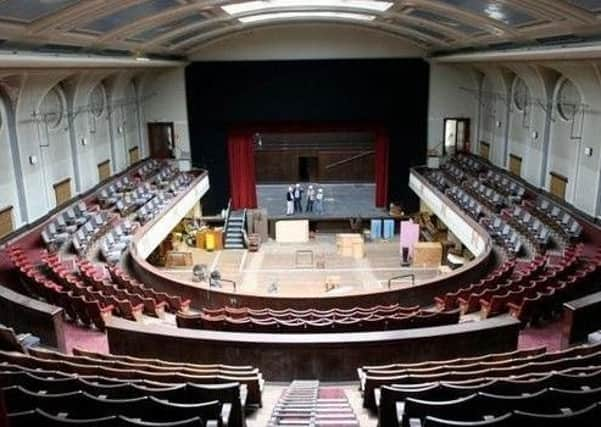The memories that we gather are a vital reminder of our roots


Naturally, our memories are selective, but it’s surprising how generic stories emerge in Citadel Arts Group’s memory-sharing projects.
How often we’ve heard the one about the “tarry bubbles”. Children used to rush out when the road mender’s vehicle passed and loved to burst the bubbles of soft tar with their feet. There was always a child who didn’t take their socks off and ruined them. Did you know that butter was the best way of cleaning tarry feet?
Advertisement
Hide AdAdvertisement
Hide AdThe rag and bone man is another recurring memory. He gave a balloon for old clothes and quite a few children – wee boys usually – traded their best new coat for a balloon. In most versions of this memory mum retrieves the coat just in time!
These are shared memories of a way of life before health and safely, a time of poverty for many, where a balloon was treasured. They convey a picture of society more vividly than in any textbook.
Recently we’ve shared the memory of Dazzle ship artist Eva Harriet Mackenzie in our play entitled Dazzle. Dazzle camouflage was used to help protect ships from German U-boats in World War One. Eva studied art in Edinburgh, she drove ambulances during the First World War and worked on the camouflage Dazzle designs.
She played a key role in a fascinating element of World War One history. Her story is a a reminder that while it’s quite right that we look back at the tragedy of Passchendaele, for example, the Great War touched many lives beyond the Western Front.
Another play, Whit aboot the Wimmen’ was inspired by memories of Leith ex-whalers.
They came along to the matinee to tell the fascinated audience about their experiences as mess boys on whale catchers in South Georgia in the 1960s, just before Salvesen closed their operations in the Antarctic due to the depletion of whaling stocks. We’ve now commissioned films of both plays.
Currently we’re collecting stories of the old Leith Theatre, known as Leith Town Hall.
A gift to Leith from Edinburgh at the time when the port was absorbed into the capital city, this fine building – which has played host to many famous acts from Ninagawa’s Macbeth to the Wombles – was allowed to fall into disrepair.
Advertisement
Hide AdAdvertisement
Hide AdEmpty for nearly three decades, it recently returned to use for the Hidden Door Festival. Many who visited were amazed to find a grand interior, which needed just a bit of a scrub up to return it to use.
Earlier this year Irvine Welsh agreed to become patron of the theatre, and launch a £250,000 drive to get the facility fully up and running again. Thanks to Leith Theatre Trust, a refurbishment is planned.
Citadel’s book of memories is intended to raise awareness of this campaign, but is also bound to inspire the recollection of long forgotten good times experienced within its walls.
Our other memory book will include the memories of Leith’s ex-whalers and many whose lives were touched by the whaling industry.
On one hand, the memories we gather are providing entertainment for a new generation. They’re good stories and a bit of escapism from today’s world.
On the other, they are a vital link with the past, reminding us of our roots, how much our lives have changed and, in many cases, how we’re where we are today as a result of the culture, customs and traditions of generations gone by.
Liz Hare is Artistic Director of Citadel Arts Group, Leith, Edinburgh.